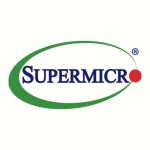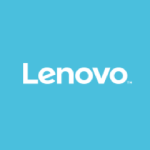What is our primary use case?
The UCS Manager, UCS Blades including chassis, and Main Data Centre Virtualization Physical Infrastructure on VMware between sites act as our critical and secure data center environment.
This solution is reliable, expandable, agile, manageable, and scales easily, allowing us to focus on using UCS Manager. We are now expanding the Cisco Hyperconverged solution embedded with the UCS manager.
This is the plus to expand the reliability, expandability, redundancy, and availability of our data center infrastructure environment.
How has it helped my organization?
This host-provisioning solution gives us peace of mind, SLA level, and ease of management from the operation team. It is reliable and gives me confidence when I upgrade firmware and expand the capacities of the data center.
Think about adding compute in 30 minutes instead of hours of technical effort. It reduced the amount of time that tech spent on support and operations instead of maintaining the whole infrastructure level.
ROI for the UCS manager solution is high and has lifted pressures and stressful burdens upon SWE.
What is most valuable?
Overall, all functionalities are excellent.
The feature that I found the most value is the abstract and stateless capacities.
What needs improvement?
USC Central seems a bit confusing for technicians.
Many functionalities that are not used for a small environment should be enforced at the enterprise level.
I would like to see USC Central offered free for use, as well as made simpler to use for technicians. This will improve its adoption rate, especially for environments that are not exposed to the internet.
Buyer's Guide
Cisco UCS B-Series
July 2025
Learn what your peers think about Cisco UCS B-Series. Get advice and tips from experienced pros sharing their opinions. Updated: July 2025.
861,524 professionals have used our research since 2012.
For how long have I used the solution?
We have been using UCS Managers and UCS Blade for more than five years.
What do I think about the stability of the solution?
Stability-wise, it is excellent.
What do I think about the scalability of the solution?
This is a scalable product.
How are customer service and support?
Technical support is excellent.
With the help of Cisco tech support, I just finished an upgrade of firmware and felt that the support team is helpful and proactive in helping customers.
I feel that Cisco tech has value. They provided me assistance and guided me through difficulties. Overall, I felt that they were excellent and I appreciated it very much, especially the consistency in following up on what is happening, including progress.
Which solution did I use previously and why did I switch?
I had used HP enclosures in a different environment.
How was the initial setup?
The initial setup is always straightforward.
What about the implementation team?
We initiated the engagement with Cisco Tech Team, and eventually, we can take ourselves.
What was our ROI?
The ROI is huge and I was surprised after seeing it when the environment was set up and stable.
What's my experience with pricing, setup cost, and licensing?
I was not involved with the specific pricing agreement, so I don't know. However, I am familiar with some of the aspects.
Generally, the cheaper, the better. I believe that this is part of the procurement management that must be involved with requirements. Pricing will be based on your requirements so it is important to plan, engage, and negotiate directly with the Cisco Account Manager.
I have an excellent relationship and experience with them. They are accommodating in all areas such as reaching out, checking and engaging in setup and configuration of equipment that has arrived, training, help in designing, consulting, pricing, and licensing.
Which other solutions did I evaluate?
As part of our evaluation phase, we researched three vendors. Each was assessed using a scorecard to rate each in terms of functionality as it related to our environment. The scale was from one to five.
What other advice do I have?
Overall, this is an excellent product.
Which deployment model are you using for this solution?
Private Cloud
Disclosure: My company does not have a business relationship with this vendor other than being a customer.







